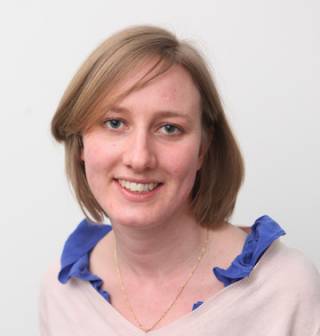We caught up with Jenny Love who graduated from the UCL Energy Institute.

What project are you currently working on?
I am currently analysing a lot of data to try to understand how leaky the UK’s new-build housing stock is! We have been given a dataset and to understand how it came about, I have to use a combination of maths and social science, which is unusual but really interesting.
What working achievement are you most proud of?
The PhD. It had many ups and downs and sometimes felt like it was going nowhere. The research question changed several times due to things going wrong or being impossible to answer.
When you look around you, you feel like everyone else’s PhD is going much more smoothly than your own, or that they’ve found out more stuff. But everyone has different challenges during their PhD. I got there in the end and I’m not better than anyone else so you will too.
How would you describe your journey to your current role?
When I was about 16 I both became a Christian and heard about climate change. It struck me that God made everyone equal but climate change is likely to increase the gap between rich and poor, so that’s not the right way to look after the earth and the people on it.
I decided I wanted to spend my life doing something about this, and clean energy seemed like one solution that would help a lot. So I did a physics degree, and graduated… into the recession of 2008, yippee. At that time, clean energy was seen as an add-on rather than essential, so there weren’t many jobs out there! But then I heard about the LoLo doctoral training centre in energy demand reduction…
What motivated you to do a PhD at the Bartlett?
I was told about the doctoral training scheme by an old colleague who essentially said that it was the place to go to study energy! Also, the focus on energy demand was very interesting – not just the physics and engineering of supplying energy but how people use energy and how demand comes about from a sociotechnical process of technologies and people and their interactions. The interdisciplinary aspect was a big plus for me and seemed to be the way to go to solve complex energy challenges.
How did studying at the Bartlett help to shape your career?
Well I’ve only been out the other end a few years so can’t fully say yet, but I found it easy to get a job outside of academia immediately after the PhD and so have many of my fellow PhD friends from the doctoral training centre.
The employer I worked for said they liked that we were well-connected with a range of stakeholders, and could talk about our work (including in forms such as blogs). I would agree - I think the PhD programme gave us an exceptional amount of contact with non-academic stakeholders and many opportunities to develop our presentation skills – more so than in typical PhD programmes. I worked in that job for a couple of years then returned to UCL to do more research.
What advice would you give to current Bartlett PhD students?
- People will tell you things like, “if you don’t succeed, try and try and try again”. Now, in the context of a PhD that ends up wasting a lot of your time which is limited, so don’t do that. Instead, “if at first you don’t succeed, try and try again for a while, then be wise about when to cut your losses and have a chat with your supervisor about modifying your approach”.
- That means you need a supervisor who is there for you to help you make big and medium-sized decisions about changes in approach – if you don’t have one like that then do try to get someone extra on board who is willing to chat things through with you.
- If you have a desk or hot desk then come in as much as possible, don’t work at home all the time, as the other students can help you and you can help them.
- If you are feel down then, if possible and financially viable, take a few months out and do an internship somewhere else – I did that and it helped me take a step back and think then make some changes to get back on track when I did come back after the few months out.
- Take opportunities to network, and if you aren’t being given them by your department, then do it off your own back. Shamelessly invite yourself to go and present at organisations where you might want a job.
- Eat lots of chocolate.
- About once per month you will have a little scare that someone else is doing the exact same PhD as you – don’t worry, they’re not, and that feeling passes.
- Try not to compare yourself to others – you are unique, your supervisory situation is unique and your project has it own challenges.
 Close
Close

